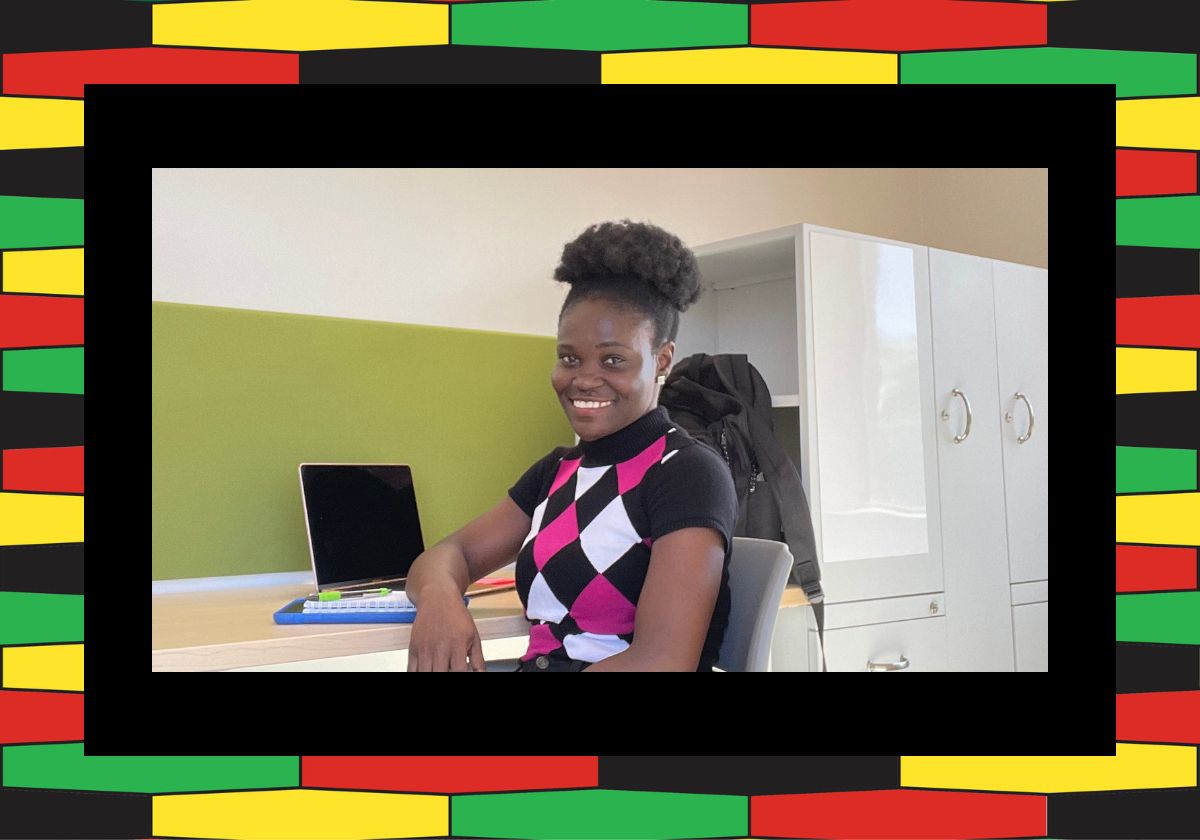
USask PhD student looks to provide mental health support for international students
Barbara Twum-Antwi is co-developing a project on mental health coping strategies for international students.
University of Saskatchewan (USask) College of Nursing student Barbara Twum-Antwi came to Canada hoping to work on immigrant health issues, with a focus on mental health.
While working as a research assistant with USask College of Nursing Associate Professor Dr. Geoffrey Maina’s (PhD) on a project on racialized immigrants, Twum-Antwi realized the experiences of the international student participants mirrored her so closely that she started delving into international students’ mental health issues.
Born and raised in Ghana, Twum-Antwi completed her Bachelor of Science in Nursing and Master of Public Health at the University of Ghana, before choosing USask for her Doctor of Philosophy in Nursing (PhD) program. An acquaintance who was already studying at USask explained how the PhD program’s design prepared students fully to become independent researchers by the time they completed their education, which was what Twum-Antwi was looking for.
“I was really hoping to work with Dr. Maina, as he had a research team in place, and I had seen the team’s research output and was yearning to be part of it,” said Twum-Antwi. “I had a lot of support from the team when I first met them, even prior to submitting my PhD application.”
Twum-Antwi, along with a student research team, is currently working with the USask Student Wellness Centre to co-develop a project and campaign on coping strategies for international students. She has also presented at nursing seminars on mental health coping strategies for international students, sharing her own experience and the strategies she had to adopt in order to feel better.
Prior to joining USask Nursing, Twum-Antwi worked in clinical practice and nursing administration at the Zabzugu District Hospital in Northern Ghana. She also worked as a preceptor for student and new graduate nurses, but wanted to move from clinical teaching to the academic teaching field.
“I knew I wanted to develop a career in research after completing my master’s level research work for my thesis. Sometimes you get into the research environment and see its impact and then it is all you think about. I started identifying problems in my environment (especially at the hospital) and looking for ways to use research to find out why things were the way they were, and how we could work as nurses to find solutions/create change.”
As Twum-Antwi moves forward in her research for her PhD she intends to work on African international students’ mental health using a participatory action approach to explore their experiences and co-create resources to support their mental well-being.
College of Nursing Assistant Professor Dr. Sithokozile Maposa (PhD) describes Twum-Antwi as “an emerging expert in African International Students and Mental Health.”
Since coming to USask to complete her PhD, Twum-Antwi has not looked back.
“The USask support system, especially at the College of Nursing, is great,” said Twum-Antwi. “This system is a very important aspect of graduate education, which sometimes gets overlooked. However, graduate students, like myself, need a school that actually cares and creates a supportive environment. Otherwise, we will struggle.”
She went on to say the affordable tuition for international PhD students and the opportunities for scholarships, research assistantships, and teaching assistantships has been a major perk of USask.
“USask has a high international student population, which is very multicultural and diverse. I was not afraid to be in a new space because I was convinced I would meet people from my background. It is easy to join local communities or groups on social media prior to arrival and the local immigration and integration societies in Saskatoon are very helpful.”
Upon completing her PhD, Twum-Antwi hopes to build experience in the area of mental health research, possibly through a post-doc, to explore more research opportunities in Canada on mental health issues among immigrants.
“Ultimately, I would love to return to Ghana if I can find teaching opportunities there, but if I can do that here in Canada too, that would be great.”
Together we will support and inspire students to succeed. We invite you to join by supporting current and future students' needs at USask.

